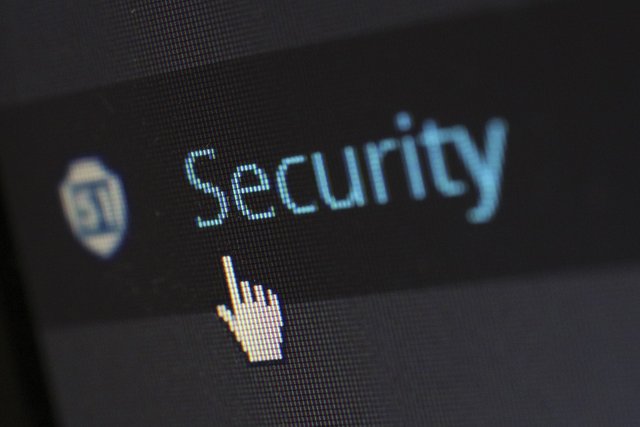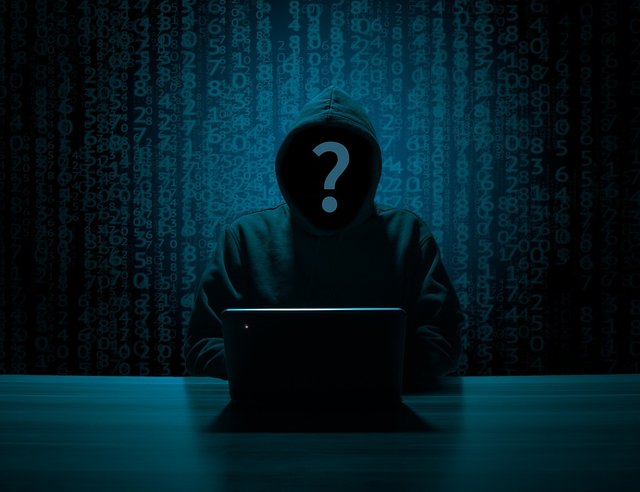Why (and how) protect your cyber identity

The black market for stolen passwords has increased by 300% since 2018, according to recent research by Digital Shadows. According to this study, it is estimated that more than 15 billion credentials of stolen accounts are offered in cybercrime forums.
The average cost is about fifteen dollars per account, although some data is even offered for free. Accounts from live streaming platforms, social media, and other services can be purchased for less than $ 10, and accounts for financial services and banks are obviously priced higher - about $ 70.
Data from the health sector is also highly coveted on the dark web: a medical history can be worth 80 euros, according to the national cryptological center. Until June 2018, this center had managed 486 incidents in the health sector in Spain. And cyber attacks in the sector are expected to increase.
Consequences of identity theft
Online privacy, and the security provided by preserving anonymity on the internet, is an increasingly demanded asset. Online exposure can create serious problems not only on a business but also on a personal scale. According to data from the European Statistical Office (Eurostat) collected by the company specialized in obtaining user data Hocelot, Spain was already in 2018 the country of the European Union with the most victims of identity theft registered. Specifically, 7% of Spanish Internet users were victims of this crime in the twelve months prior to obtaining these figures, while the community average in the same period was 4%. And the most serious thing is that it can take a long time for the victim to realize that he has been the victim of identity theft: the same data reflected that it takes an average of 5.4 months for a person to realize it, which multiply the negative consequences.
"It is likely that at some point they will hack Facebook or Gmail or our private insurance", warns Diego Miranda-Saavedra, associate professor of the Master of Business Intelligence and Big Data Anaylitics at the UOC's Computer, Multimedia and Telecommunications Studies, who advises «Have a different password and email account for everything. In this way, power is placed in the user's hands and the possibilities of suffering identity theft are limited ”.
And it is that the consequences can be serious. One of them, obviously, is the purchase of goods with a false identity, something that, in some cases, is not immediately detected. Health identity theft, for example, can be very difficult to detect, which makes it much more dangerous - 40% of patients end up finding out when they receive letters claiming charges, etc., and this does not happen until a year after the robbery for 50% of individuals. In addition, there is the possibility of coercion or extortion, depending on the data they access and how "compromising" they may be (photos, videos, etc.). All this without taking into account "the emotional damage and stress caused by knowing that hackers can have your data and even take control of your life," adds the UOC collaborating professor.
The more anonymous on the internet, the better
The potential danger that our identity may be stolen is not the only reason it makes sense to preserve anonymity on the internet. Also the job search can be truncated for not having taken the necessary precautions to erase all traces of our data on the network. The 2019 Connected Talent report, prepared by the job search portal Infoempleo and by the professional services company EY, states that 81% of organizations acknowledge consulting the social networks of shortlisted professionals before making a hiring decision. Something that is not a problem if you have an immaculate history, but it is not always like this: the same study reveals that 34% of organizations have rejected the candidacy of any candidate for a job because of the image they projected in some of their profiles on networks.
Hence the importance of using networks sparingly or even using a pseudonym, as recommended by Miranda-Saavedra. Other measures: do not publish the phone and address, do not upload personal photos, disable permissions that the social network does not need and avoid posting comments in public places or not talking to someone we do not know.
To prevent anyone from following our trail on the internet, we can implement various strategies. Among them, some as basic as updating all the software we use, since update patches are often security patches; do not install extensions in the browser that we do not know; avoid filling personal questions to retrieve access; not share our passwords with anyone; not connect to open wifi networks that we do not know about; renew passwords at least every eight weeks; Or opt for the most extensive ones and, if possible, include several words. "A password with numbers and symbols is more difficult to remember, but above all it is less effective than one consisting of six unrelated words," says Diego Miranda-Saavedra
Regarding navigation, the expert recommends Brave or Firefox as an alternative to Chrome, since this browser registers the visited pages and sends this information to Google's servers. In case of using Firefox, it is a good idea to install extensions like Disable WebRTC to disable the WebRTC protocol that comes by default in Firefox and that could reveal our IP address even when using a VPN; Privacy Bagder to block trackers; Facebook Container to prevent Facebook from tracking us online, or uBlock Origin to block ads.
Another recommendation is to opt for Startpage or DuckDuckGo instead of Google. «Google registers all our activities since we started searching, even if you are in incognito mode. However, Startpage and DuckDuckGo protect your privacy while you search. His business model is based on presenting the products you are looking for only using the words of your search in real time, but these are neither archived nor are they truly personalized recommendations, "says the UOC collaborating professor.

Very good recommendations friend, the truth is that the theft of identity and our personal data to access our accounts has become very popular and dangerous, it is important to be aware of all signs that we are being victims of something similar. The digital world has gained a lot of strength so it is time to protect our information.
It is important to implement all the security measures at our disposal, to avoid being victims of computer crimes.
correct first is security
Protecting our personal information can help us in several ways: they can help us reduce risks, they can falsify the information provided, in case of a theft they can use your identification. It is important that we take security measures in this regard for our own good and that of others. Thank you for sharing this important information with us
it is a pleasure to share information with you ..
And thanks for your comment
Security for our personal information is necessary but these cybercrime hackers are making it impossibIe to protect